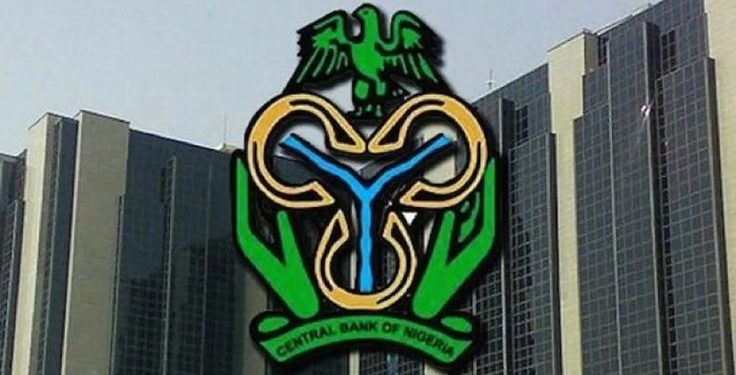The Central Bank of Nigeria (CBN) has issued a sweeping directive that halts dividend payments, executive bonuses, and foreign investment expansions by seven of the country’s largest commercial banks. The directive, issued as part of Nigeria’s ongoing 2026 bank recapitalization roadmap, affects Zenith Bank, GTCO, Access Bank, United Bank for Africa (UBA), First Bank Holding (FBNH), Fidelity Bank, and First City Monument Bank (FCMB).
The apex bank’s latest order has sparked widespread discussion across financial markets and among retail investors. While on the surface it may appear to be a punitive measure, financial experts and regulators insist it is a strategic and necessary recalibration one designed not to punish the banks, but to protect the broader economy, depositors, and the long-term health of Nigeria’s financial sector
At the heart of this development is the issue of regulatory forbearance. This term refers to temporary relief or leniency granted by regulators to banks that have breached key prudential guidelines—such as lending too much to a single borrower, misclassifying non-performing loans, or underreporting capital adequacy ratios. Essentially, these banks have been allowed to operate under relaxed regulatory scrutiny to avoid systemic disruptions. However, that leniency comes with a cost.
The CBN has now drawn a line: no more capital distribution until these banks prove their financial health. The regulator has mandated that all affected banks must independently verify their capital adequacy, correct any deficiencies in their financial positions, and fully exit the forbearance regime before resuming payouts or offshore investments.
This means:
No dividends to shareholders, including retail investors and institutional stakeholders.
No bonuses or performance-linked incentives to top executives or senior management.
No new capital investments in foreign subsidiaries or offshore operations.
Capital Retention Over Capital Distribution
The essence of the CBN’s directive is simple retain capital rather than distribute it. This ensures that banks have enough internal liquidity to absorb shocks, finance lending, and strengthen their risk-weighted assets, especially in an environment where inflation, exchange rate volatility, and credit risk are on the rise.
Historically, Nigerian banks have depended heavily on dividend payments to maintain investor confidence and market value. Many investors rely on these payouts as a steady income stream. But CBN is emphasizing prudence over profit, stability over short-term gain.
By freezing payouts and bonuses, the CBN is curbing the financial exuberance often witnessed in boom cycles. It wants banks to reinvest earnings into reinforcing their balance sheets instead of rewarding shareholders or expanding aggressively abroad.
Contrary to social media speculation and panic-driven narratives, this is not a sign of an impending banking collapse. In fact, some of the banks involved such as First Bank and UBA are veterans of previous crises, having withstood shocks from the 2008 global financial meltdown, oil price crashes, and Nigeria’s multiple recessions.
The CBN has made it clear that this directive is not an attack on these institutions. Instead, it is a proactive move aimed at insulating the financial sector from systemic risk and aligning Nigerian banks with global best practices. In the aftermath of the 2008 financial crisis, for instance, the United States enforced similar capital restrictions on banks through the Dodd-Frank Act. Likewise, the European Union imposed capital retention measures post-COVID to ensure banks could weather macroeconomic headwinds.
While the CBN’s directive may disappoint short-term shareholders expecting returns, it is positioned as a win in the long run.
For retail investors, the freeze on dividends may reduce immediate income. However, stronger capital positions will improve banks’ ability to lend responsibly, drive innovation, and provide more resilient returns in the future. Investors are also protected from the risks of excessive leverage and under-capitalization.
For the economy, this decision helps safeguard depositors’ funds, curbs the risk of loan defaults, and ensures Nigerian banks are better positioned for future challenges. A recapitalized banking system will also be in a stronger place to support critical sectors such as manufacturing, infrastructure, and technology.
Aligning with the 2026 Recapitalization Plan
This directive also forms part of the broader 2026 banking recapitalization plan recently launched by the CBN. As Nigeria prepares for economic restructuring and aims to attract international investment, financial institutions are expected to meet higher capital requirements and international standards in corporate governance, risk management, and compliance.
By ensuring that these banks are not weakening their capital through payouts and bonuses during a period of increased regulatory scrutiny, the CBN is setting the stage for a more secure and globally competitive banking environment.
Don’t Fear the Freeze Respect the Foundation
The Central Bank of Nigeria’s decision to suspend dividends, bonuses, and foreign investment activities for seven major banks should not be viewed through the lens of crisis. Instead, it is a calculated effort to realign the banking sector with best practices, prioritize deposit safety, and fortify the sector’s role in national economic development.
As Nigeria moves toward a more resilient financial future, the message from the CBN is clear: “No more financial vibes. Build real strength.” Retail investors, bank staff, and the broader public are advised to see this not as punishment but as protection. A stronger financial foundation today means safer savings, smarter lending, and more sustainable returns tomorrow.

























































